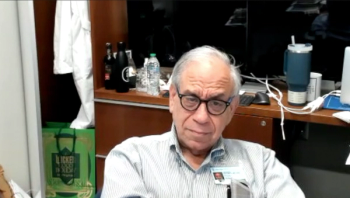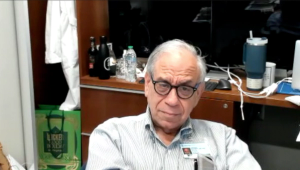
CAR T-cell therapy initially developed for mantle cell lymphoma was subsequently assessed in marginal zone lymphoma.

Your AI-Trained Oncology Knowledge Connection!


CAR T-cell therapy initially developed for mantle cell lymphoma was subsequently assessed in marginal zone lymphoma.

The efficacy of the BOVen regimen in chronic lymphocytic leukemia facilitated its evaluation in patients with mantle cell lymphoma.

Clinicians outline the significance of the MZL Workshop, where a gathering of international experts in the field discussed updates in the disease state.

Non-Hodgkin’s lymphoma is primarily a disease of the elderly, with61% of the new cases reported in patients 60 years old or older. Aggressivecombination chemotherapy can cure some patients, but there arefrequently treatment failures and overall survival is low. Retrospectivestudies have found that treatment with less than standard chemotherapydoses is associated with lower survival, and surveys of practice patternshave found that many patients, especially elderly ones, are treated withsubstandard regimens and doses. Neutropenia is the major dose-limitingtoxicity of chemotherapy in patients with non-Hodgkin’s lymphoma.First-cycle use of colony-stimulating factor (CSF) can reduce the incidenceof neutropenia and its complications and help maintain the chemotherapydoses. Researchers have investigated risk factors in patientswith non-Hodgkin’s lymphoma to determine which patients are at highestrisk for neutropenia and would benefit from targeted first-cycle CSFsupport. It has been shown in several studies that advanced age, poorperformance status, and high chemotherapy dose intensity are risk factors.Other trials suggest that low serum albumin levels, elevated lactatedehydrogenase levels, bone marrow involvement, and high levelsof soluble tumor necrosis factor receptor are also risk factors. Doseintensity has also been shown in many studies to be an important predictorof survival in patients with non-Hodgkin’s lymphoma. Managingthe toxicity of chemotherapy with CSF has facilitated the deliveryof planned dose on time, as well as dose-intensified chemotherapy regimens.The promising results from recent clinical trials of dose-denseregimens with CSF support suggest that this could prove to be the beststrategy for improving patient outcomes.

Published: May 7th 2025 | Updated:

Published: May 8th 2025 | Updated:

Published: November 1st 2003 | Updated:

Published: February 17th 2025 | Updated: